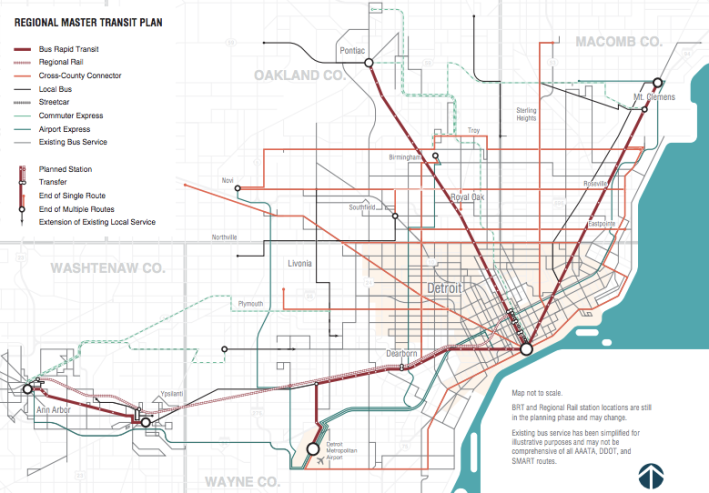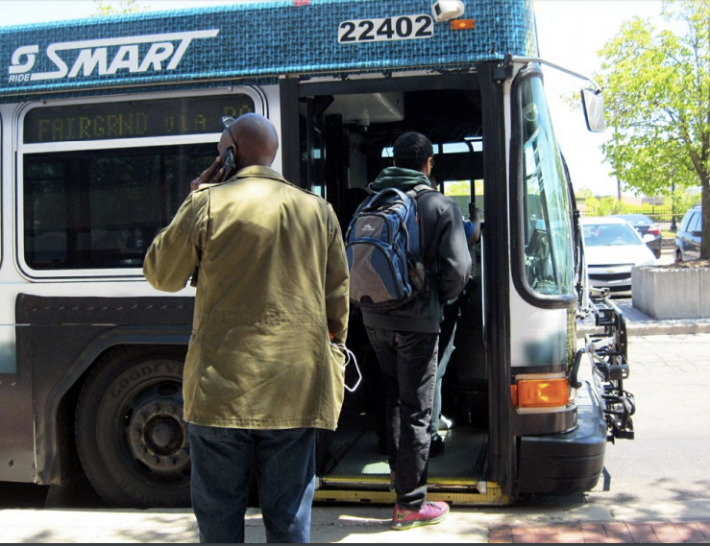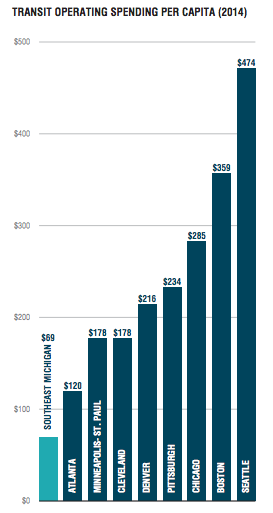
We continue our overview of what’s at stake in the big transit ballot initiatives this November with a look at Detroit. Previous installments in this series examined Indianapolis and Seattle
The four-county transit ballot measure before voters in Southeast Michigan this November is truly historic.
It took 40 years and 23 failed attempts for Detroit and its suburbs to establish a regional transit agency. They finally won state support to establish the RTA in 2012. At the time, Detroit was on the verge of bankruptcy, and its general-revenue-supported transit system was in dire condition.
Transit service in the region is fragmented and unreliable, even though a quarter of city residents don't own cars. The severity of the problem was encapsulated by the story of James Robertson, whose commute to a factory job in the suburbs required taking two buses and walking 21 miles.

The RTA can't deliver a better transit system without funding, and that's where the vote in November comes into play.
The Detroit region has put together a $4.6 billion, four-county plan to improve transit. The centerpiece is a network of bus rapid transit lines extending out from downtown. Funded by a 20-year property tax increase, the measure would cost the average homeowner in the region about $95 a year.
Megan Owens, director of the advocacy group Transit Riders United, says the measure is important for a few reasons. Right now, urban and suburban transit services are poorly integrated. That's what messed up James Robertson's commute -- the suburb he worked in opted out of the suburban transit system. The lack of coherent transit connections makes the region's notorious job sprawl an even bigger problem.
Thousands of people in the region have to go to extraordinary lengths just to get to work, Owens said. "There’s some huge gaps," she said. "There’s a lot of places that you can’t get to or that people are forced to ride two and three hours just to get where they need to get."

The measure enjoys broad support as a means of both improving job access for low-income residents and attracting and retaining educated young people. The Detroit Regional Chamber of Commerce backs the transit initiative, one of 300 groups in a coalition that includes a range of interests, from environmental groups and disability advocates to Ford Motor Company.
The backbone of the system will be four bus rapid transit lines connecting Detroit to major employment centers, reaching as far as Pontiac and Ann Arbor. The plan also calls for "regional rail" between Ann Arbor and downtown Detroit. Other service expansions include a network of "cross-county connectors" running between suburbs and "commuter express" lines on some of the region's major highways.
When complete, the new system will put nearly a million jobs and more than a million residents within a quarter mile of transit.
Some opposition emerged from the northern suburbs, but key political actors who could have blocked it, like Oakland County Executive Brooks Patterson (the "Sprawl King") have opted not to.
It seems that the Detroit region has finally unified around the need for better transit.
"We’ve had some pretty rough history of racial tension and division between the city and the suburbs," said Owens. "Some of the things that other regions take for granted as obvious to the importance of a vibrant central city is sort of a novel concept for some people in Southeast Michigan."
Now, attitudes are changing.
"Enough people have visited every other metro region and realized, 'Hey maybe we are missing out on something here,'" she said.





